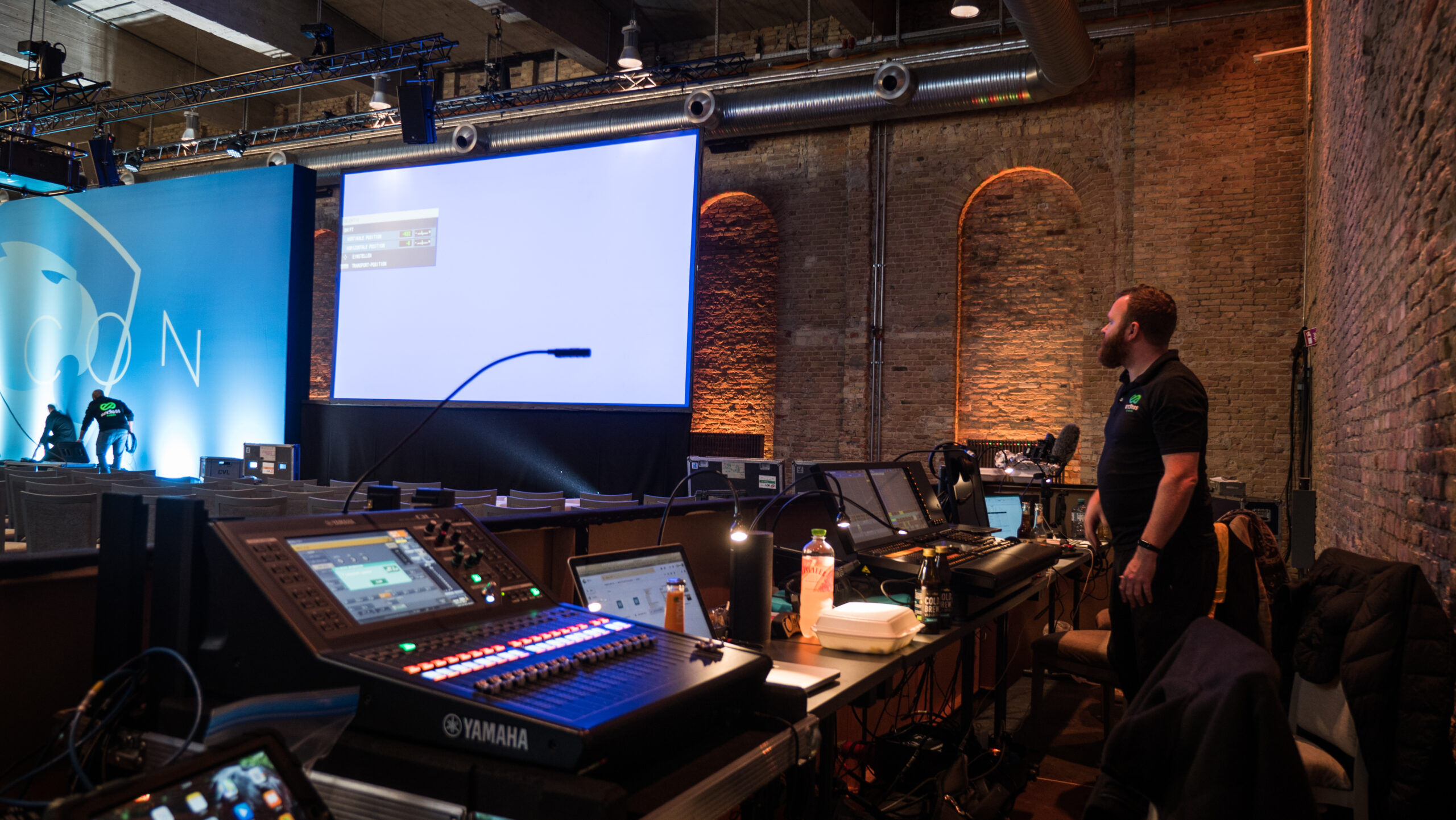Understanding Exactly How Events Production Works: A Comprehensive Review of the Process
The intricacies of event production need a systematic approach that integrates numerous phases, each playing an essential role in the total success of an event. Comprehending the subtleties of budgeting, source allocation, and on-site monitoring is necessary for any kind of professional in this field.
Initial Preparation and Idea Advancement
Reliable preliminary planning and idea advancement act as the structure for successful events production. This phase includes defining the event's purpose, target audience, and desired end results. A clear vision is essential; it guides all succeeding choices and helps straighten the group's efforts toward an usual goal.
Throughout this phase, brainstorming sessions can be indispensable. Involving stakeholders, consisting of customers, sponsors, and potential guests, promotes a joint setting that generates ingenious ideas. In addition, complete market research must be performed to comprehend patterns, preferences, and possible challenges.
Once the principle is developed, it is important to develop an in-depth occasion summary. This rundown ought to consist of the occasion's style, format, and crucial tasks. Developing a timeline is similarly crucial, as it helps to manage jobs and target dates successfully.
Budgeting and Resource Allotment
With a strong principle in place, attention must turn to budgeting and source allowance, which are important elements in carrying out the occasion efficiently. A well-defined budget plan serves as a roadmap, outlining all anticipated expenses and readily available sources - Event Productions.
Source allotment includes designating both human and monetary sources to different tasks and elements of the event. Prioritization is essential; essential aspects should get sufficient funding while less important elements might need an extra traditional approach. Moreover, contingency preparation is essential-- allocating a portion of the budget plan for unforeseen costs can minimize financial dangers.
Additionally, effective communication amongst team participants pertaining to budget restrictions cultivates cooperation and advancement. This advertises the accountable use of sources and encourages creative options to remain within budget plan. Eventually, a calculated technique to budgeting and source appropriation prepares for a successful event, making it possible for organizers to focus on delivering an unforgettable experience for participants while maintaining monetary stability.
Logistics and Coordination
Browsing the complexities of logistics and coordination is important for the smooth implementation of any kind of event. This stage includes meticulous planning and organization to ensure that all elements operate in harmony. Crucial element include place selection, transportation plans, and the scheduling of various activities.
Efficient logistics begins with an extensive evaluation of the venue's abilities and constraints. This includes recognizing the design, accessibility points, and available sources. As soon as the venue is validated, transport logistics need to be developed, incorporating the activity of guests, tools, and products. Collaborating these aspects requires partnership with vendors, suppliers, and transport solutions to ensure timely shipments and pickups.
Another vital aspect is the advancement of an extensive timeline that lays out all logistical components leading up to the event. This timeline works as a roadmap, describing key landmarks and deadlines for tasks such as equipment arrangement, providing solutions, and audiovisual setups. Regular interaction with all stakeholders is crucial to attend to any kind of possible problems proactively.
Implementation and On-Site Monitoring
Successful implementation and on-site monitoring are vital for changing thorough strategies into truth Resources throughout an occasion. This phase includes the seamless sychronisation of different components, guaranteeing that every information aligns with the established vision. On-site supervisors play a critical function, working as the central point of interaction among vendors, team, and stakeholders. Their capacity to make real-time decisions can considerably impact the occasion's success.
A well-defined timetable is crucial, working as a roadmap for all tasks. Occasion managers should make certain that configuration happens on schedule, sticking to timelines for sound checks, catering shipments, and visitor arrivals. Reliable analytical skills are also important; unexpected obstacles can occur, requiring fast reasoning and versatility to keep the occasion's flow.
Additionally, focus to guest experience is vital. Checking guest interactions, making certain security methods are followed, and supplying assistance team to resolve concerns promotes a favorable environment. This degree of involvement not just improves the overall experience however additionally reflects the professionalism of the event team. Event Productions. Ultimately, successful implementation and on-site administration rest on detailed preparation, reliable communication, and a dedication to providing an extraordinary occasion for all involved.

Post-Event Analysis and Responses
The culmination of any occasion lies not just in its execution but also in you can try here the extensive assessment that complies with. Post-event analysis is important for figuring out the overall success of the event and recognizing locations for improvement. This procedure normally involves celebration comments from different stakeholders, consisting of attendees, vendors, and employee, to get a detailed perspective on their experiences.
To structure the assessment, event organizers frequently make use of studies and interviews, concentrating on vital performance signs such as attendee contentment, logistical effectiveness, and budget adherence. Analyzing this information enables planners to analyze whether the event met its goals and to recognize the strengths and weak points of the execution.
By systematically addressing comments and carrying out adjustments, event specialists can improve their approaches, eventually leading to more successful and impactful occasions. In conclusion, post-event examination is an important action in the event production process that makes sure ongoing growth and quality in future undertakings (Event Productions).
Conclusion

The intricacies of event manufacturing demand a systematic method that integrates numerous phases, each playing a vital function in the general success of an occasion.With a strong idea in place, focus needs to turn to budgeting and resource allowance, which are crucial elements in carrying out the occasion efficiently.Source allowance includes designating both human and monetary useful content sources to numerous tasks and parts of the event. Eventually, a calculated technique to budgeting and resource allowance lays the foundation for an effective occasion, allowing coordinators to focus on supplying a memorable experience for guests while maintaining monetary stability.
